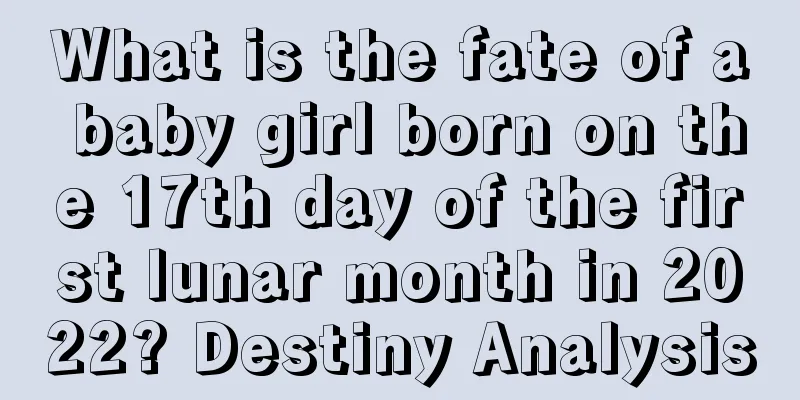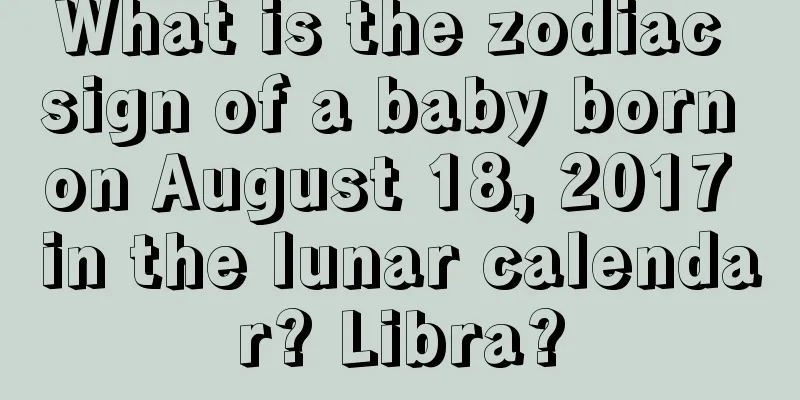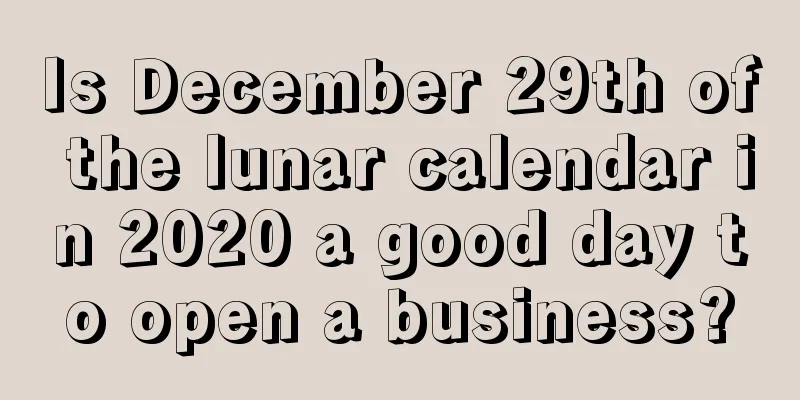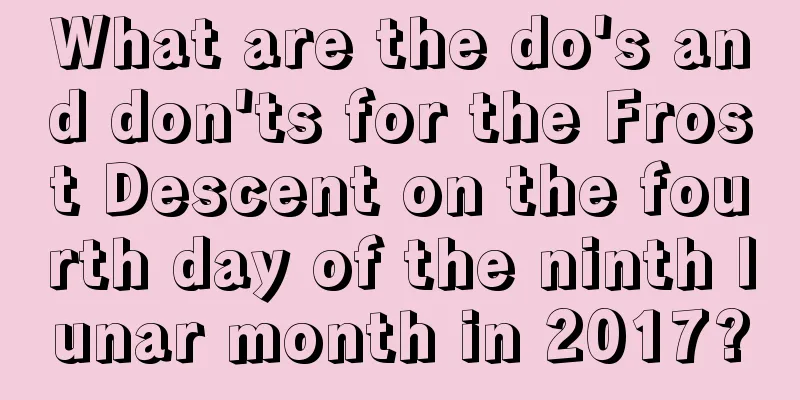What festival is on the 29th day of the twelfth lunar month in 2018 and what are the traditional customs?

The twelfth lunar month is also known as the month of sacrifice. After this month we will usher in the New Year, so the last few days of the twelfth lunar month are crucial for people. So what festival is on the 29th day of the twelfth lunar month in 2018? 2018 has just begun and the Year of the Rooster is coming to an end. What things should we pay attention to at the end of the year? The Fortune Teller website has prepared a lot of relevant content for you in the twelfth month of the lunar calendar special topic. Please feel free to check it out.What festival is on the 29th day of the twelfth lunar month in 2018?The twenty-ninth day of the twelfth lunar month, the day before New Year's Eve, is commonly known as "Little New Year's Eve". On this day, families hold banquets, people visit each other, which is called "farewell to the old year", and burn incense outdoors, which is called "tianxiang". This usually lasts for three days.The so-called "Little New Year's Eve" New Year's Eve refers to the last night of the twelfth lunar month of each year, which is connected to the Spring Festival (the first day of the first lunar month). The word "chu" in "Chuxi" means "to go; to change; to alternate". Chuxi means "the end of the month and the year". People have to get rid of the old and welcome the new. It means that the old year is over and the new year will come. It is the last night of the lunar calendar. Therefore, the activities during this period are centered around getting rid of the old and bringing in the new, eliminating disasters and praying for blessings. During the Zhou and Qin dynasties, at the end of each year, a "Dannu" ceremony was held in the imperial palace, in which drums were beaten to drive away the plague demons, which was called "Zhu Chu". Later, the day before New Year's Eve was called the Little New Year's Eve, or Little New Year's Eve, and New Year's Eve was called the Big New Year's Eve, or Big New Year's Eve. What are the traditional customs on the 29th day of the twelfth lunar month in 2018?Visit the graves and ask for great offerings from the ancestors <br /> The Chinese lunar calendar is divided into long and short months. The so-called long month is 30 days long, while the short month is only 29 days long. Therefore, the twelfth lunar month is a short month, and the twenty-ninth day is the last day of the year. Then the 29th day of the twelfth lunar month is New Year's Eve. Even if it is not a short month, the next day is New Year's Eve, so all preparations for the New Year must be completed on this day. In the entire New Year festival, the 29th day can be said to be the busiest day. In addition to preparing various food, clothing and sacrificial offerings for the New Year festival, there is also an extremely important activity of "visiting the graves to pray to the ancestors". Therefore, the New Year's folk song says, "On the 29th day of the twelfth lunar month, visit the graves of ancestors and ask for great offerings."The worship of ancestors has a long history in our country. Treating the dead as if they were alive is not only an important symbol of filial piety, but also a virtue of respecting the elderly. Therefore, every time there is a festival, we have to offer sacrifices to our ancestors. This is not only a way to comfort the ancestors, but also an expression of gratitude and longing for the ancestors by the descendants. The Spring Festival is a major festival, so the ceremony of visiting graves and praying to ancestors is particularly solemn and important. The time for visiting the graves and praying to the ancestors is in the early morning of the 29th day in most areas, while in a few areas it is in the afternoon or dusk on New Year's Eve. The folk song says "On the 29th, steamed buns" The dough is leavened on the 28th, and the steamed buns will start to be steamed on the 29th. People use their imagination to make the buns into various shapes such as longevity peaches and small animals. In Tianjin, people will go to Qiaoxiang Pavilion to ask for Chinese knots on this day, which means "Qiaoxiang brings good luck". |
>>: Which day is better in the twelfth lunar month of 2017 and what are the customs?
Recommend
What are the customs of Frost Descent? Which month and day is Frost Descent in 2019?
What are the customs of Frost Descent? Which month...
Where to take your parents for a trip during the Mid-Autumn Festival in 2019? Recommendations for the best places to enjoy the moon during the Mid-Autumn Festival in 2019!
Introduction: Mid-Autumn Festival is a festival of...
Is June 15th of the lunar calendar in 2020 an auspicious day for sacrifice? What zodiac sign is in conflict with August 4th?
Introduction: Generally, it is necessary to choose...
Analysis of the date of April 23rd of the lunar calendar in 2022: Is it a good time to start renovation?
Good or bad days are different every day. It is ve...
Will a marriage proposal be successful on August 30th of the lunar calendar in 2022? Is it an auspicious day?
The second month of autumn is the eighth month of ...
Is it appropriate to move graves on the fourth day of the fifth lunar month in 2019? Is today a good day for moving graves?
Introduction: Relocating graves is an important ma...
Can I get married on the fourth day of the fifth lunar month in 2017? Is it suitable for engagement?
Getting married cannot be rushed, and choosing a g...
The fate of those born on the 15th night of the first lunar month in 2022, and the fate of those born at the 12 hours of the day
The Lantern Festival falls on the fifteenth day of...
What is the zodiac sign of a child born before the beginning of spring in 2022? How is fate?
The zodiac attributes of children will be differen...
Analysis of the zodiac signs and destiny of people born on October 20, 2019!
There is a certain connection between constellatio...
Is the Civil Affairs Bureau open for business on the 14th day of the first lunar month in 2021? Can I get the certificate? Is the time good?
It is quite common to get married in the first mon...
What is the best gift to give to my boyfriend during the Mid-Autumn Festival in 2017?
Introduction: Mid-Autumn Festival is an important ...
Are boys born on Xiaoxue Day in 2021 good? What kind of personality do they have?
The Minor Snow solar term ushers in a severe winte...
Is it a good idea to pick up a new car on the tenth day of the seventh lunar month in 2019?
Picking up a new car is a big deal. It is best to...
The lunar calendar for May 3rd in 2017. Is May 3rd a good day?
The fifth month of the lunar calendar is the Drago...









